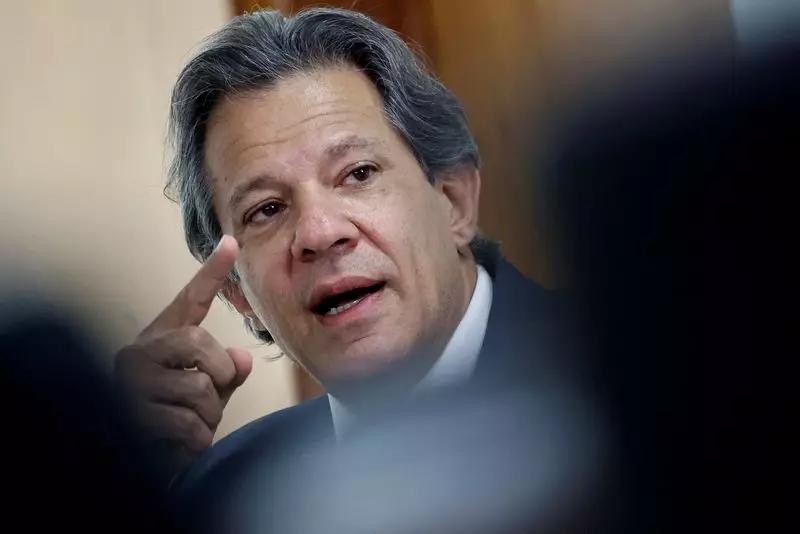In recent weeks, Brazil has found itself grappling with a significant economic dilemma. The daunting rise of mandatory expenditures has led to a heated discussion regarding fiscal responsibility and reform. As the nation witnesses the Brazilian Real plummet to its lowest values against the U.S. dollar, questions surrounding the government’s ability to stabilize the economy have intensified. The Finance Minister, Fernando Haddad, has stepped into the spotlight, declaring that the obstacles previously hindering the negotiation of a fiscal package have finally been addressed. However, complexities persist, pointing to a choppy road ahead.
The proposed fiscal package aims to rein in public spending and realign the budget towards sustainability. Haddad announced that President Luiz Inácio Lula da Silva envisions expanding the cuts to include an additional ministry, although details remain vague at this stage. A timely rollout of this package is crucial, especially considering the context of upcoming municipal elections, which have pushed the government to tread carefully while navigating political sensitivities.
Discussions between Lula and his chief of staff with leaders from numerous ministries have already commenced. Health, Education, and Pension have been among the focus areas, as these sectors are often polarizing during budgetary debates. As negotiations progress, the government faces the delicate task of balancing fiscal discipline with the social implications of expenditure cuts. The ability to communicate these adjustments to the public will be pivotal in gathering support for the measures.
The financial markets are acutely aware of Brazil’s fiscal turbulence, with the Brazilian Real’s decline highlighting investor concerns. A fiscal package that lacks clarity or appears to be delayed could exacerbate this instability. Though Haddad emphasized that recent adjustments have made the proposed measures “more understandable and palatable,” without an established timeline for the public announcement of these reforms, skepticism remains.
Moreover, the Minister confirmed that he intends to discuss the package’s presentation to both the Lower House and Senate leaders, asserting his confidence in Congress approving the measures before the end of the year. However, this optimism must be tempered with realism; political maneuvering, especially in an election year, often complicates legislative processes.
As Brazil traverses this uncertain financial landscape, the implications of these fiscal reforms extend beyond government budgets. Reduced spending could potentially affect public services and economic stimulus, directly impacting the average citizen. In light of these realities, the development and implementation of any fiscal package must be conducted with a keen understanding of socio-economic dynamics.
The path forward will require not just political acumen but also effective communication strategies that make the rationale behind spending cuts transparent and relatable to the population. The social contract between the government and the people must remain intact to ensure long-term stability and trust.
While attempts are being made to address fiscal challenges, the broader implications of these actions will need to be considered as Brazil seeks to regain its economic footing. The upcoming months will be crucial in determining whether the proposed measures can deliver a sustainable future for Brazil.

